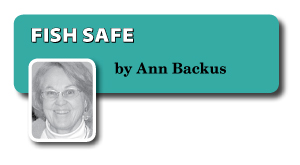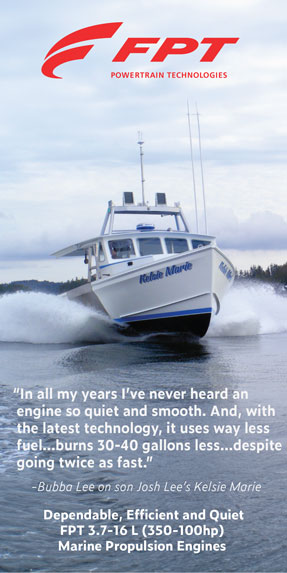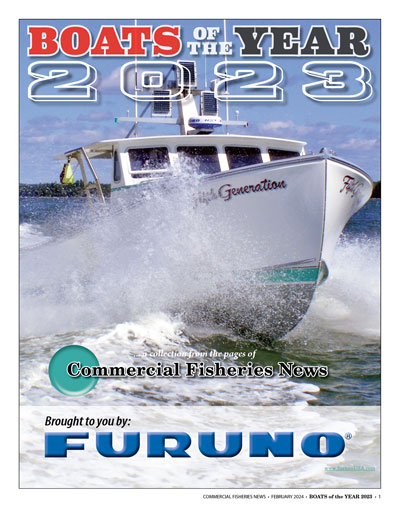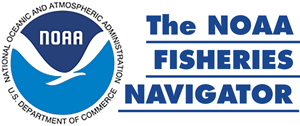by Ann Backus –
Whether you fish commercially for lobsters, scallops, groundfish, or other species, you probably own an Electronic Position Indicating Radio Beacon (EPIRB). These instruments are vital for helping the Coast Guard locate you and/or your vessel in times of distress. Both vessel and personal EPIRBs are now available at a reasonable cost.
For all their benefits, EPIRBs still present some problems for the Coast Guard and vessel owners. Along with its database of marine casualties, Coast Guard District 1, which covers New England, keeps track of its responses to “accidental,” as opposed to distress, EPIRB activations.
 These accidental activations trigger unnecessary Coast Guard responses that cost the agency and taxpayers money, and they can create real inconveniences for vessel owners.
These accidental activations trigger unnecessary Coast Guard responses that cost the agency and taxpayers money, and they can create real inconveniences for vessel owners.
In this article, we will look at some of the issues related to accidental EPIRB activations for the years 2010, 2011, and 2012.
The good news is that the number of accidental and “cause unknown” activations decreased from 54 in 2010 to 35 in 2011, and to 22 in 2012.
Of the 54 accidental activations in 2010, 20 were in Massachusetts fishing areas and 12 were in Maine fishing areas. The lobster fishery led the pack with 17 activations. The groundfish fishery had seven, while scallopers logged four. Nearly half – 25 – were attributed to other fisheries or listed as “fishery unknown” or fishery “not recorded.”
In 2011, the Coast Guard again responded to accidental EPIRB activations mainly in Massachusetts and Maine fishing areas, with 13 and 11 responses respectively. The distribution of accidental activations among fisheries was: lobster, 12; groundfish, eight; scallops, three; and unknown fisheries, 12.
In 2012, of the 22 nondistress activations logged, eight were in Maine fishing areas and four were in Massachusetts fishing areas. Again, the lobster fishery led with seven, followed by groundfish, four, and other fisheries, 11. No accidental scallop vessel EPRIB activations were recorded.
Triggers
During these three years, the Coast Guard used slightly different approaches to logging the causes of the accidental activations, so the data aren’t exactly comparable from year to year. Nonetheless, there are lessons to be learned from this portion of the database.
In 2010, the most frequent cause was listed as “activated by the captain,” a total of eight of them. There was a tie for the second most-frequent cause of activation between “testing” and during “exam/being serviced” with five each. There also was a tie for third place between “thrown away” and “fell overboard” with three each.
In 2011, the most frequent causes were “testing” at two and “faulty instrument,” also at two. The second most-frequent causes were tied at one each and listed as “vandalized,” “during wash down,” “hit by gear,” and “bad weather.” No causes were listed for the other 27 activations.
For 2012, there were three accidental activations presumably triggered by fishermen/captains, and then a list of seven activations, each occurring once, the reasons for which included “changing the battery, testing, faulty bracket, fell overboard, sold, wave, and thrown in the trash.”
When taken as a whole, these accidental activations seemed to have happened because of human error during testing, servicing, changing the battery, a dockside exam, or unintentionally getting the unit wet. Some activations happened when bad weather or waves set them off, the bracket did not hold, or the unit was faulty.
A third type of accidental activation was related to the fact that EPIRBs are required to be registered with the National Oceanic and Atmospheric Administration. When a vessel is sold with the EPIRB intact, the unit must be reregistered to the new owner. Several of the comments in the Coast Guard accidental activation database under “cause unknown” indicated that the current vessel owner was not known.
When a vessel is scrapped, the EPIRB should be removed and deregistered until reregistered with a new vessel. Lastly, an EPIRB should be deregistered before it is thrown away.
Accidental activations are largely preventable, and curtailing them could save everyone a lot of time and money. Accurate registration by current owners also could reduce inconveniences to former EPIRB owners.
Additionally, there is an opportunity for fishing vessel safety instructors to help avoid these problems by emphasizing proper handling of EPIRBs as part of their safety courses. n
Ann Backus, MS, is the director of outreach for the Harvard School of Public Health’s Department of Environmental Health in Boston, MA. She may be reached by phone at (617) 432-3327 or by e-mail at <abackus@hsph.harvard.edu>.
<< Back to Fishing Vessel Safety Page







